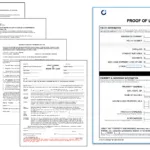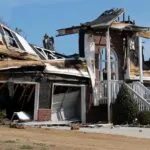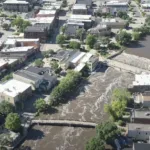Filing a homeowners or property insurance claim can be frustrating. Immediately after your property is damaged is not the time anybody wants to be consumed with paperwork and tedious requirements. Making an insurance claim and following it through to payment is not anything you want to happen, and it’s almost assuredly something that rarely occurs. It’s not something you do every day, and it’s subject to nuanced and hard to understand state laws and regulations, as well as complicated policy terms. The good news, through, is that California has fairly robust protections for policyholders, and the California Fair Claims Settlement Act, as well as the rest of the California insurance code, provides strict deadlines and requirements for the investigation and payment of property insurance claims. If policyholders are aware of these deadlines and rules, and are proactive with respect to their claims, they should have a smooth, fast, efficient, and fair insurance claim process.
These resources are built to help policyholders — and all the stakeholders who work with them, like adjusters, attorneys, contractors, and consultants. These resources will help you file your claim correctly, document your losses thoroughly, and know when and how to followup through the claim process. And, if necessary, how and when to escalate and resolve the claim.
Filing Deadline
Without Unreasonable Delay
A property insurer can deny a claim if the policyholder waits an unreasonably long time to provide the notice of claim. It is always best practice to inform an insurer of any covered loss for which a claim will be made as soon as reasonably possible.
Initial Response Time
15 days
California requires property insurers, upon receiving notice of a claim, to immediately, but in no event more than 15 calendar days, acknowledge the claim, provide the claimant any required forms with instructions and/or reasonable assistance, and begin any necessary investigation.
Claim Decision Time
40 Days
California generally requires that the insurer must accept or deny the claim in whole or part within 40 days of the initial notice of the claim, and pay any undisputed amounts within 30 days of the claim determination.
Lawsuit Deadline
1 Year
In California, a suit against an insurer pursuant to the property insurance policy must be initiated within 12 months of when the loss occurred, however, this period is tolled from the time notice of loss is provided to the insurance company until the loss is denied.
State Department
California Department of Insurance
300 South Spring St., South Tower,
Los Angeles, CA 90013
1-800-927-4357
File your Claim Now with ClaimSpot
ClaimSpot guides you through a quick, secure, and effortless filing experience.
It’s free. Let ClaimSpot Make Your Claim Fast & Easy.
California Insurance Claim Guide
California Insurance Frequently Asked Questions
All insurance claims start by informing your insurance company of the loss. You want to do this as soon as possible, the claim can be denied if there is an unreasonable delay in informing your insurer. While there are many ways to notify the insurance company. It’s most important that you keep a record of notifying them. Here are frequently asked questions about how to best “file your claim” with the insurance company in California and the state regulations that will help (or hurt) you!
In order to initiate a claim under a property insurance policy in California, the policy holder only needs to inform the insurance carrier (either directly or through their insurance agent) that there has been a loss and wants to start the claim process. In many cases, an insurance company will call this communication a first notice of loss, or FNOL. In the CA insurance code, this initial communication is called a notice of claim. While it can help to be as detailed as possible in the first communication with the insurer or agent, the key is just to ensure the insurance carrier knows the property is damaged and a claim is being made.
Most insurance companies provide multiple ways to contact them after a loss to begin the claims process, these usually include:
Phone call (a number is usually provided on the insurance company’s website);
Online portal – many insurance companies have an online form to notify the claims department of a loss, this may even be through a mobile app;
Your agent – many insurance companies even have a different section of their website or phone number for an agent to inform them of a policy-holder’s loss;
Online software as a virtual assistant.
Note that an insurer is not allowed to require the notice of claim to be in writing unless “unless such requirement is specified in the insurance policy or an endorsement thereto.”
The claims process can generally be started easily, with just a quick communication to the insurer. However, the insurer will likely require more information and supporting documentation, including specific forms, to actually process and adjust the claim. Luckily, California law requires that the insurance company to immediately, but in no event longer than 15 days after receiving the notice of claim, acknowledge the claim, and provide the policyholder with instructions and any required forms, and begin their investigation of the claim if one is necessary.
Some things are pretty much universally the best practice after your property suffers damage. These steps include:
1. Mitigate the damage, as soon as it is reasonable. This means protect the property and secure it against further damage as soon as it is safe and possible. Mitigation only means trying to keep the damage from getting worse, it does not mean that it is required or a good idea to jump directly into substantive repairs.
2. Determine if the covered damage exceeds the policy deductible by an amount sufficient to make a claim.
3. Inform the insurance carrier of the damage.
4. Cooperate with your insurance company, inspectors/adjusters, and other interested parties and communicate with them (and keep copies of all correspondence).
5. Make your property available for inspection as soon as it is safe and possible to do so.
6. Prepare supporting documents for your claim including:
– Inventory list;
– Description of damages;
– Photographs and/or videos of the damage;
– Receipts; etc.
Reporting Deadline: California law requires that, “in case of loss upon an insurance against fire, an insurer is exonerated if notice thereof is not given to him without unnecessary delay”. This means that a property insurer can deny a claim if the policyholder waits an unreasonably long time to provide the notice of claim. This can also be confusing, as a “fire policy” covers losses other than those caused by a fire. California defines fire insurance as insurance against “fire, lightning, windstorm, tornado, or earthquake”.
Whether or not a delay may be “reasonable” it is generally best practice to report a property damage claim as soon as you believe a covered loss has occurred. Insurance policies often require notice of loss within a reasonable amount of time, and it is not a good idea to let a potential claim sit around, as a failure to timely notify the insurance carrier of the loss can be used to deny the claim.
Additionally, any notice of loss for a policy other than fire, life, or marine must be given with 20 days of the loss.
Documentation Deadline: California requires that, for residential property insurance claims, the insured must provide a sworn Proof of Loss within 60 days of the date of loss. This proof of loss is required to include, to the best of the policyholder’s knowledge and belief, details like the time and cause of the loss, the parties with an interest in the property, and more.
Additionally, California insurers can require a preliminary proof of loss, and a claimant should provide an itemized list of damages with the estimated value and the claim amount within a reasonable amount of time after the loss. It is best practice to provide this information as soon as possible or commensurate with the notice of loss communication.
Deadlines for Acknowledgment: California, through the California Fair Claims Settlement Act, has strict and relatively short timing requirements that insurance companies must adhere to with respect to property insurance claims.
Once an insurer receives a notice of claim, they are required to immediately, but in no event more than 15 calendar days, acknowledge the claim and provide to the claimant any required forms with instructions and/or reasonable assistance.
Deadlines for Adjustment: California insurers are also required to begin any investigation of the claim (if any such investigation is required) within the same 15-day period after receiving the notice of claim.
Additionally, there are ongoing requirements regarding responsive communication from the insurer throughout the claims process. California requires that the insurer fully respond to any communication by the policyholder that reasonably suggests a response is expected within 15 days of the receipt of the communication. Further, the insurance company must provide an update to the status of the claim every 30 days that the claim remains open.
Deadline for Acceptance/Denial: California generally requires that the insurer must accept or deny the claim in whole or part within 40 days of the initial notice of the claim. This time period can be extended, but only if the insurer provides the policyholder with reasonable written reasons for the delay within the initial 40-day period, and updates the reasons every 30 days the claim remains open. Additionally, California insurance law requires that the insurer provide a written reasonable explanation of why the claim was accepted, denied, or partially denied, or why the insurer’s claim payment is less than specified in any insurer’s detailed estimate of the amount of the loss if that is the case.
Deadline for Payment: Absent certain limited exceptions, California requires that any portion of a claim not in dispute (including if a settlement agreement is reached) must be paid within 30 calendar days of the claim determination.
If an insurance company is determined to be in violation of the payment deadline above, California law states that the insurer is liable for: “interest, beginning the 31st day, at the prevailing legal rate . . . [as well as] for all costs of collection, including reasonable attorneys’ fees, if legal action is necessary to obtain payment after the company has willfully failed to pay within the 30 days.”
Deadlines to File Suit: Filing suit against a property insurance company is the last step that nobody wants to take – but if a claim is denied and a dispute exists, sometimes it is the only way to get paid for the loss that was incurred. In California, a suit against an insurer pursuant to the property insurance policy must be initiated within 12 months of when the loss occurred, however, this period is tolled from the time notice of loss is provided to the insurance company until the loss is denied.












